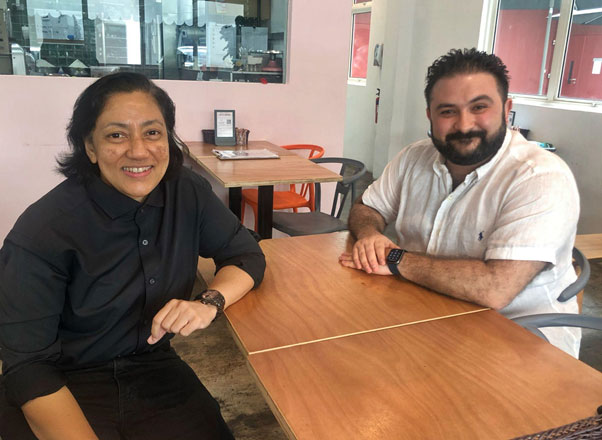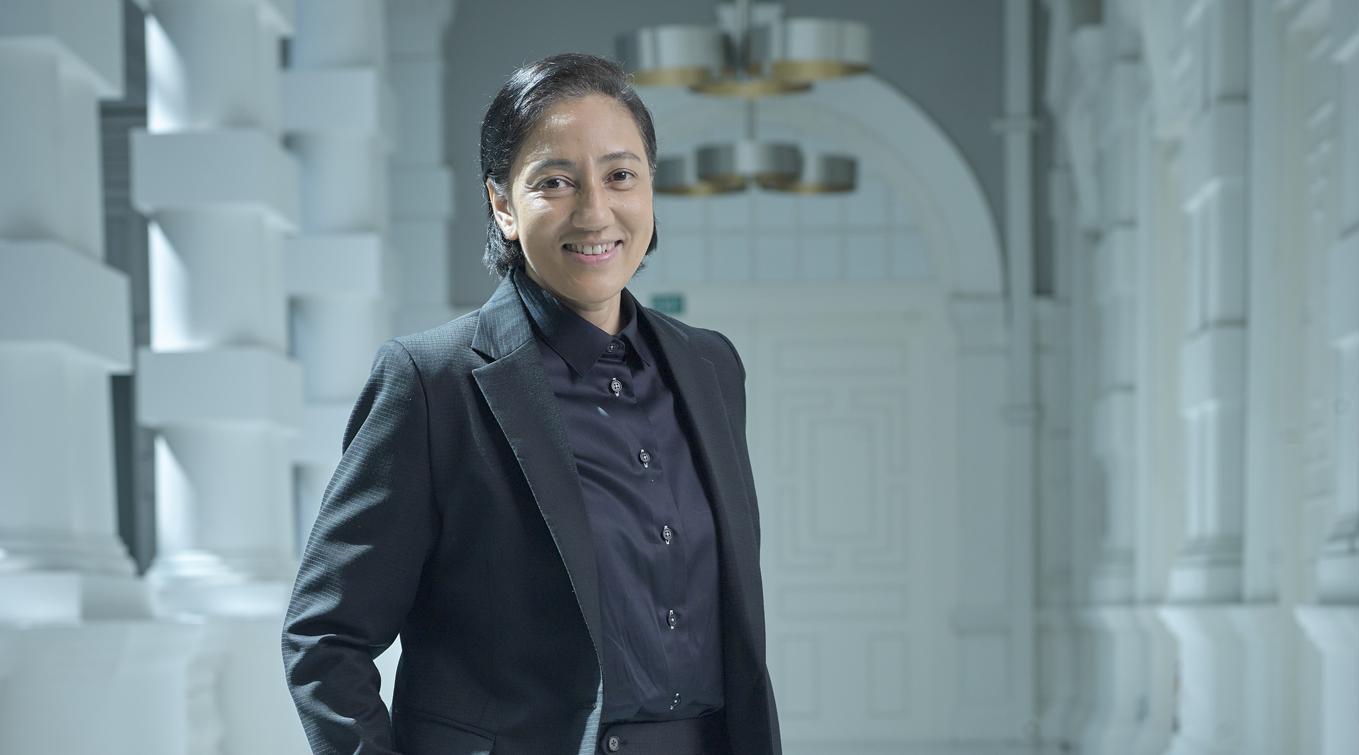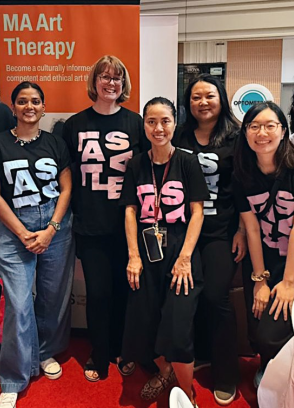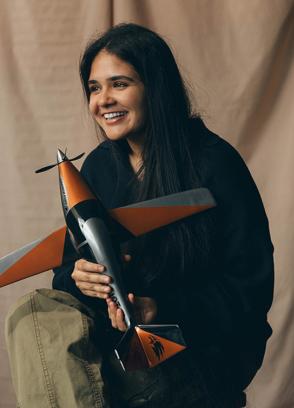Image credit: The Arts House Limited.
Natalie Hennedige graduated from LASALLE College of the Arts in 1998 with a BA(Hons) Drama, and since then has made her mark in the theatre industry.
She is the founder and Artistic Director of Cake Theatrical Productions, a contemporary performance company based in Singapore, where she conceptualises, writes and directs works in theatre and other media. Her work in theatre has earned her five Life Theatre Awards.
Now, Natalie tackles a new challenge as the Festival Director for the Singapore International Festival of Arts (SIFA) 2022–2024, setting the artistic direction and curatorial trajectory for SIFA.
Dr Felipe Cervera, lecturer in the Faculty of Performing Arts, recently sat down with Natalie to catch up on what she has been working on, how she conceives of the role of Festival Director, and her experience as a student and part-time lecturer at LASALLE.
Felipe: What do you remember of LASALLE?
Natalie: My first encounter with theatre was Theatre Studies at Junior College. I gained a lot there, but the College was also really structured, and it was very focused on academics.
When I was in LASALLE, it was raw. It was a jungle, in the best sense of the word. As students, we found our community, our tribe there. Many of us had not previously fit the box of school. We all had this interest in theatre – theatre was our life. The teachers and my friends were my family, and our family was not just the LASALLE family, but we were connected to this lineage of theatre makers across histories and places. I felt like I was understood and celebrated as a person, and all my quirks and strangeness was very welcomed. My expressiveness and my intensity was welcomed. That was my first arena of an artistic community.
Felipe: When you came back to LASALLE to teach part-time, what was your experience like?
Natalie: I loved it. I loved going back to LASALLE because it was a nurturing ground for me. When I went back to teach at LASALLE, I remembered how I felt about teachers who pushed me, and I wanted to do that. I knew that being challenged was important for students. To be an arts student takes courage because you have to be ready to be tested. Whenever I walk into LASALLE, there is a sense that the building can change, but you cannot change the spirit and the energy. I feel that carries through.
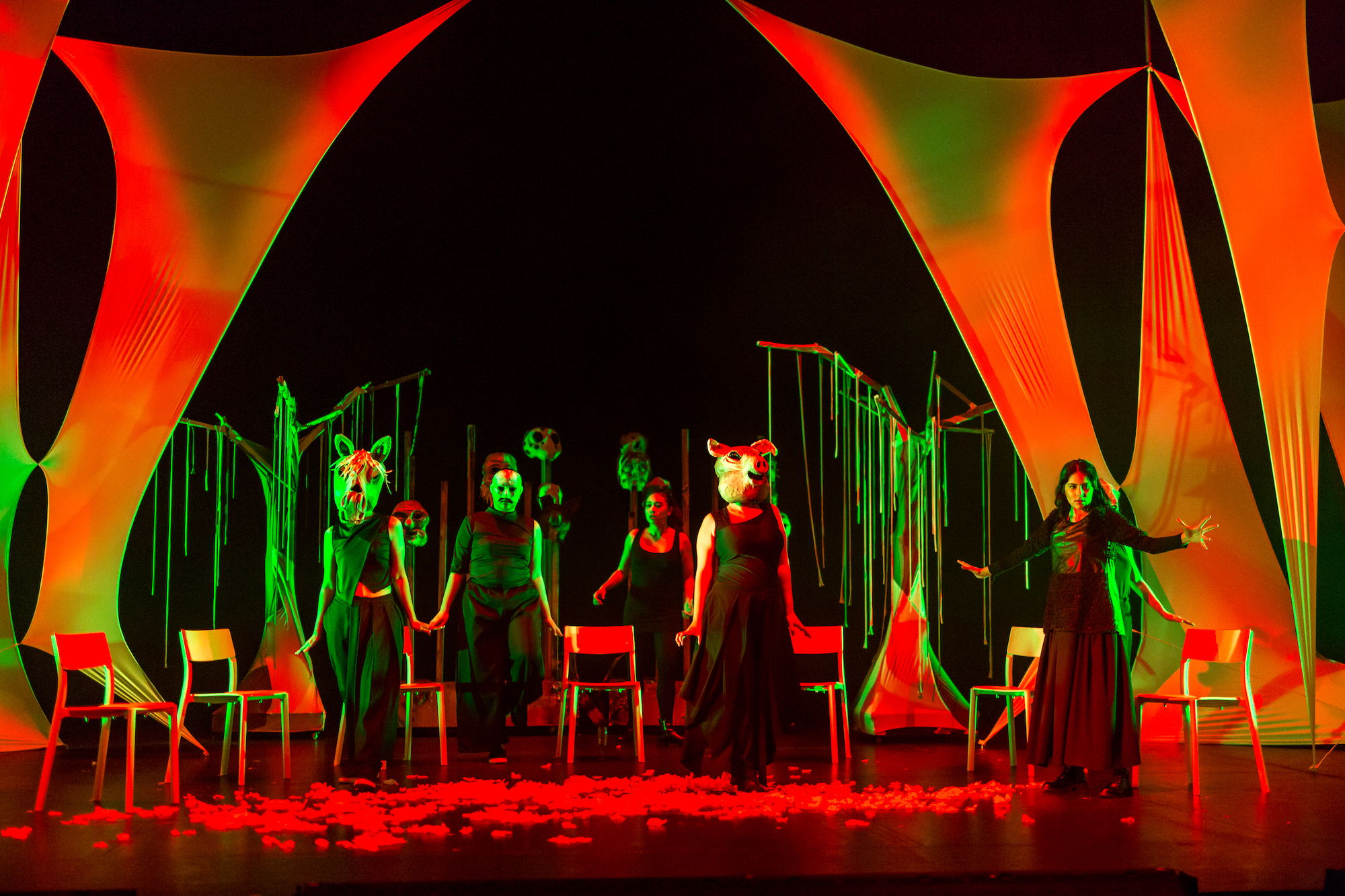
Felipe: I agree. The students here have an uncommon hunger that makes it nice to teach in that environment.
Let’s change course. How are you as an artist and how have you approached your new role?
Natalie: In this role as Festival Director, it’s in essence an expansion of what I do as a theatre and performance director. If you think about the theatre space, worlds are constructed in the rehearsal room. The people who enter the rehearsal space — from performers, to designers, to producers — all come in with aspirations for what is being created. You have to take it in, channel it and keep building.
When I came into this position, I looked at how this festival sits in relation to the arts ecology. There was a time where you could only watch works by major artists like Robert Wilson, or like Pina Bausch at the festival. But our theatre companies are so independent and strong. They produce their own things and they have their own energy. The main question I asked was, ‘what is this space?’ What can SIFA in this moment contribute to the arts landscape – I try to gradually answer that question in the ways that I put the festival together.
Felipe: How did you approach the framing of SIFA?
Natalie: The pandemic happened and I was faced with more space, and I used that time to map what I wanted to do. I did all it took to activate my imagination, though reading, research and going deep into my inner creative recesses to draw ideas out. The first words that came to me were ‘ancient ways and tomorrow’, and then ‘spectrums and spectre’, and then ‘confession’.
Felipe: That sounds really interesting. Why ‘ancient ways and tomorrow’?
Natalie: We are vessels of stories — stories existed in the earliest civilisations, through etchings or gathering oral tales. The most futuristic thing is connected to the most ancient thing. To me, that's what performance is — we're all on a continuum.
As I went on, I started thinking about what it was that I want the audience to engage in. When we put a work together and organise a performance, it is a ritual. In all performances, you are always thinking of time, which is duration; artefact, which is costume props; and gesture, which is what we do and how we greet; and then how we apply these, whether in the form of abstract dance or movement.
Felipe: I think that is very interesting. During the pandemic, especially live performance, has had a sort of existential crisis about the impossibility of coming together and sharing a space to watch performance together. But suddenly it turns out that we can do things differently and still call it performance. We can still come together online. There is this sense of remoteness — but there is performance. To what extent can the festival now articulate a new anatomy of performance?
Natalie: I think it sort of goes back to one of your earlier questions, which is how am I as an artist and how do I move into this?
For me, the theatre space was always a space that exists, and things live and depart constantly in it. A whole world is built, and then the world dissolves, and another world is built. These spaces contain history and paths.
Our paths and ancestors, and our lineage — artistic, human and personal — they are all part and parcel of life. For instance, I see my path as Festival Director as part of my entire journey — I was a student at LASALLE, I am the Festival Director, and I am just part of this thing that's larger than me.
For me, coming into the SIFA Festival Director position was about shining a light and awakening the festival to its roots, purpose and essence. It was forged in the 70s and as this nation developed, she begun to recognise her artists, bestowing the Cultural Medallion, for instance. Recognising that the voices of our diverse artists, educators and cultural practitioners, artistic souls who were born in this land or chose to make it home, we are all part of it. All become bloodlines in the fabric of our city’s creative being. The festival has this purpose, this reason for being.
You ask me what it means to be a Festival Director, what is powerful to me? That is powerful to me, to be part of that.
